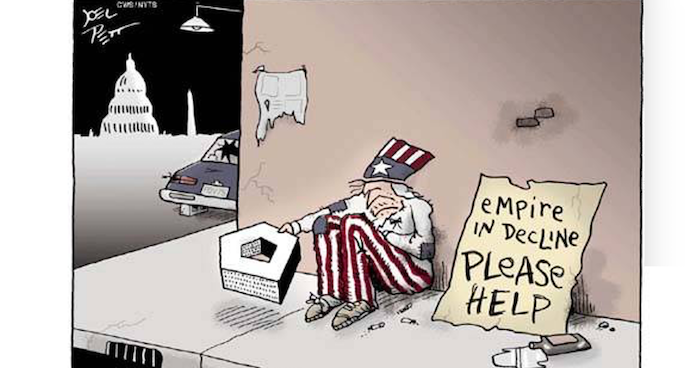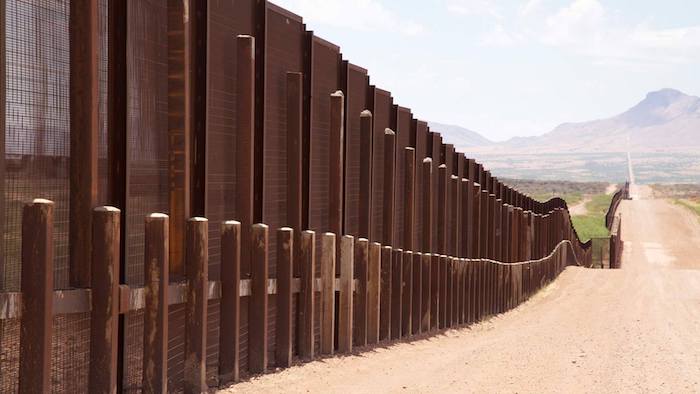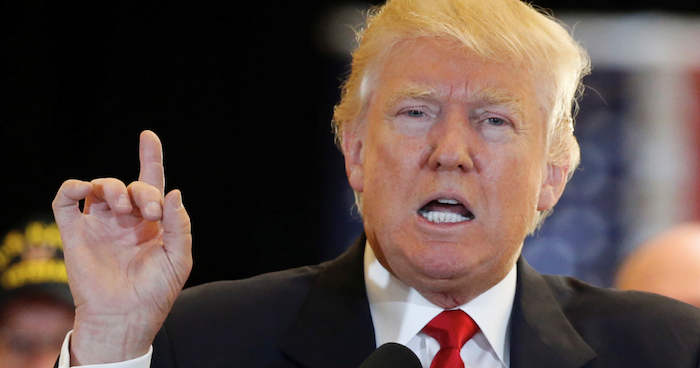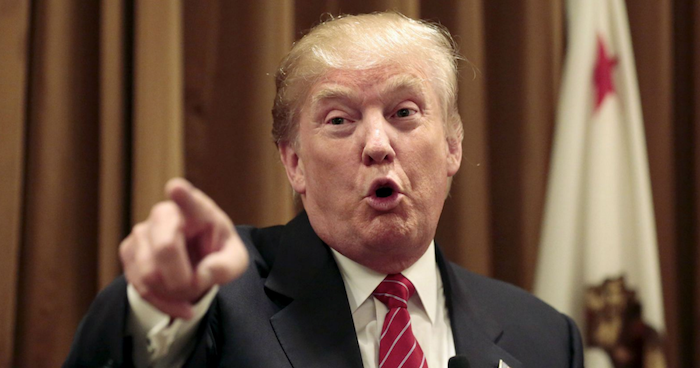|
By Simon Black Most of the world is in an uproar right now over the travel ban that Donald Trump hastily imposed late last week on citizens of seven predominantly Muslim countries. But there was another ban that was quietly proposed last week, and this one has far wider implications: a ban on cash. The European Union’s primary executive authority, known as the European Commission, issued a “Road Map” last week to initiate continent-wide legislation against cash. There are already a number of anti-cash legislative measures that have been passed in individual European member states. In France, for example, it’s illegal to make purchases of more than 1,000 euros in cash. And any cash deposit or withdrawal to/from a French bank account exceeding 10,000 euros within a single month must be reported to the authorities. Italy banned cash payments above 1,000 euros back in 2011; Spain has banned cash payments in excess of 2,500 euros. And the European Central Bank announced last year that it would stop production of 500-euro notes, which will eventually phase them out altogether. But apparently these disparate rules don’t go far enough. According to the Commission, the presence of cash controls in some EU countries, coupled with the lack of cash controls in other EU countries, creates loopholes for criminals and terrorists. So that’s why the European Commission is now working to standardize a ban on cash, or at least implement severe restrictions and reporting, across the entire EU. The Commission’s roadmap indicates that forthcoming legislation, likely to be enacted next year. This is happening. And it may serve as the perfect case study for the rest of the world. A growing bandwagon of academics and policy makers in other countries, including the United States, UK, Australia, etc. has been calling for prohibitions against cash. It’s always the same song: cash is a tool for criminals and terrorists. Harvard economist Ken Rogoff is a leading voice in the War on Cash; his new book The Curse of Cash claims that physical currency makes the world less safe. Rogoff further states “all that cash” is being used for “tax evasion, corruption, terrorism, the drug trade, human trafficking. . .” Wow. Sounds pretty grim. Apparently pulling out a $5 bill to tip your valet makes you a member of ISIS now. Of course, this is total nonsense. A recent Gallup poll from last year shows that a healthy 24% of Americans still use cash to make all or most of their purchases, compared to the other options like debit cards, credit cards, checks, bank transfers, PayPal, etc. And the Federal Reserve Bank of San Francisco released a ton of data late last year showing that: – 52% of grocery purchases, along with personal care products, are made in cash – 62% of purchases up to $10 are made in cash – But even at much higher amounts over $100, nearly 1 in 5 purchases are still made using physical cash This doesn’t sound life nefarious criminal activity to me. It seems that perfectly normal, law-abiding citizens still use cash on a regular basis. But that doesn’t seem to matter. A bunch of university professors who have probably never been within 1,000 miles of ISIS think that a ban on cash would make us all safer from terrorists. You probably recall the horrible Christmas attack in Berlin last month in which a Tunisian man drove a truck through a crowded pedestrian mall, killing 12 people. Well, the attacker was found with 1,000 euros in cash. The logic, therefore, is to ban cash. I’m sure he was also found wearing pants. Perhaps we should ban those too. This idea that criminals and terrorists only deal in bricks of cash is a pathetic fantasy regurgitated by the serially uninformed. I learned this first hand, years ago, when I was an intelligence officer in the Middle East: criminals and terrorists don’t need to rely on cash. The 9/11 attackers spent months living in the United States, and they routinely used bank accounts, credit cards, and traveler’s checks to finance themselves. And both criminal organizations and terrorist networks have access to a multitude of funding options from legitimate businesses and charities, along with access to a highly developed internal system of credit. A cash ban wouldn’t have prevented 9/11, nor would it have prevented the Berlin Christmas attack. What cash controls do affect, however, are the financial options of law-abiding people. These policymakers and academics acknowledge that banning cash would reduce consumers’ financial privacy. And that’s true. But they’re totally missing the point. Cash isn’t about privacy. It’s one of the only remaining options in a financial system that has gone totally crazy. Especially in Europe, where interest rates are negative and many banks are on the verge of collapse, cash is a protective shelter in a storm of chaos. Think about it: every time you make a deposit at your bank, that savings no longer belongs to you. It’s now the bank’s money. It’s their asset, not yours. You become an unsecured creditor of the bank with nothing more than a claim on their balance sheet, beholden to all the stupidity and shenanigans that they have a history of perpetrating. Banks never miss an opportunity to prove to the rest of the world that they do not deserve the trust that we place in them. And for now, anyone who wishes to divorce themselves from these consequences can simply withdraw a portion of their savings and hold cash. Cash means there is no middleman standing between you and your savings. Banning it, for any reason, destroys this option and subjects every consumer to the whims of a financial system that is stacked against us. This article was originally published at Sovereign Man.
President Trump ordered a second US attack on Yemen in his still-short presidency. Over the weekend a commando-style raid was said to have killed 14 al-Qaeda operatives. Also killed were at least ten civilians including children. Is this just a continuation of Obama's disastrous Yemen policy...?
By Chris Rossini
Sincere advocates of liberty need to travel a tough and rugged path. Surrounded by the darkness of empire and its draconian reach into all aspects of our lives, champions of liberty must keep their eyes on the prize without becoming despondent. This can be challenging in a society that has come to rely so heavily on the state. The ideas of liberty are hardly ever considered an option. Often they're even frowned upon. How does one deal with such a situation? Once you understand the principles of liberty, you can't just give up on them and pretend they don't exist. So how does one grapple with times that are so deleterious to liberty? The easiest way is to contemplate the big picture. If there's one thing about life, it's that it hardly ever moves in one direction for very long. Pivots and reversals regularly occur and often when they're least expected. In fact, prior to the formation of the American empire, it was the warmongers themselves who were despondent. They were the ones who had to live with the reality that their ideas were not an option. It's hard to imagine, isn't it? We're so used to militarism being a part of daily life that's it's tough to believe that the shoe was once on the other foot. But it's true. Those who dreamed of converting the U.S. government from its original purpose of protecting the liberty of American citizens into a military empire struggled immensely. The fact was that the American people had absolutely no interest in it. America was a land of unprecedented liberty from government. An empire is the exact opposite. It's total reliance on government. Let's go back to the late 1800's and consider Theodore Roosevelt's story. Roosevelt was a passionate warmonger. He (and several others) were extremely determined to convert the United States into an empire. But it wasn't like flipping a switch. They had to deal with what was (in their eyes) a stubborn public fixated on peace. In fact, in 1897, Roosevelt was quite discouraged. As Stephen Kinzer writes in his latest masterpiece: Roosevelt wrote that he felt “a good deal disheartened at the queer lack of imperial instinct that our people show.”
Once again, imagine warmongers being disheartened today. They literally have free rein to do whatever they want. American citizens sheepishly comply as long as the words "national security" are attached. The world (and our taxes) have been their oyster ever since 1898.
So what happened in 1898? Well, that was the fateful year of the very brief (but world changing) Spanish-American war. In a few short months, the U.S. would gobble up Hawaii, Puerto Rico, Guam, Cuba & The Philippines in one fell swoop. There were many warnings, prior to this dreadful step, by those who opposed this change of course. Here's New England pastor Charles Ames in 1898: “The policy of imperialism threatens to change the temper of our people, and to put us into a permanent attitude of arrogance, testiness, and defiance towards other nations...Once we enter the field of international conflict as a great military and naval power, we shall be one more bully among bullies. We shall only add one more to the list of oppressors of mankind...Poor Christian as I am, it grieves and shames me to see a generation instructed by the Prince of Peace proposing to set him on a dunce’s stool and to crown him with a fool’s cap.”
That's some prescient thinking right there....
In the matter of one year, Roosevelt went from "disheartened" to a state of jubilation. Not only was the American empire birthed, but Roosevelt was immediately elected as Governor of New York. A formerly "disheartened" man, with few political prospects, was on his way to the presidency. He said: "I have played it with bull luck this summer. First, to get into the war; then to get out of it; then to get elected. I have worked hard all my life, and have never been particularly lucky, but this summer I was lucky, and I am enjoying it to the full."
Lucky for him....unlucky for the land of the free.
From that year onward, the U.S. government would not only come to dominate its own citizens, but much of the world as well. There are only a couple of countries left that refuse to play by the empire's dictates. And here we are, advocates of liberty, staring at the consequences. So, what can be learned? What can Roosevelt's experience teach us? Well, the first is that ideas rule the world. Americans unfortunately latched onto a destructive idea back in 1898. It was something new and different. They were seduced by the prospect of global power. Naturally, an all-powerful government would need a central bank to finance itself. Welfare as far as the eyes could see would naturally spring from that, and government would become the one and only solution to any problem. Oh, and of course, there would be constant war. Andrew Carnegie, who was a fierce opponent of the budding empire warned that the country would be placed "within the zone of wars and rumors of wars." That sums it up right to this very day....a never-ending carousel of wars. The second lesson is that things can change very rapidly. Roosevelt's story is testament to that. Americans may believe something today, and can continue believing for awhile, but they can also change their minds on a dime. That's why military propaganda is so prevalent and is infused into every area of our lives. It has to be constantly reinforced, because people can change their beliefs in an instant. Because we're always free to think differently, the prospect of liberty is never lost, no matter how many times the propaganda is repeated. Right now, the prospects of liberty look bleak, but that's just part of the life scenario: twists and turns....dusk and dawn...darkness and light. The job of the liberty advocate is to continually vocalize the ideas of peace, non-aggression and voluntary interactions no matter what the outside world may look like at the present moment. Someday the warmongers will go back to being despondent again. Their success rate throughout history comes in at a solid 0%. The pivot back to liberty will be a great time, whenever it occurs. Those who experience it will be "luckier" than Theodore Roosevelt back in 1898. President Trump's Executive Order putting a 90 day hold on visas issued to citizens of seven countries has led to chaos and anger at the airport. Is the opposition justified? Is the list justified? We discuss where Trump got it wrong.
By Ron Paul
Just one week in office, President Trump is already following through on his pledge to address illegal immigration. His January 25th executive order called for the construction of a wall along the entire length of the US-Mexico border. While he is right to focus on the issue, there are several reasons why his proposed solution will unfortunately not lead us anywhere closer to solving the problem. First, the wall will not work. Texas already started building a border fence about ten years ago. It divided people from their own property across the border, it deprived people of their land through the use of eminent domain, and in the end the problem of drug and human smuggling was not solved. Second, the wall will be expensive. The wall is estimated to cost between 12 and 15 billion dollars. You can bet it will be more than that. President Trump has claimed that if the Mexican government doesn’t pay for it, he will impose a 20 percent duty on products imported from Mexico. Who will pay this tax? Ultimately, the American consumer, as the additional costs will be passed on. This will of course hurt the poorest Americans the most. Third, building a wall ignores the real causes of illegal border crossings into the United States. Though President Trump is right to prioritize the problem of border security, he misses the point on how it can be done effectively and at an actual financial benefit to the country rather than a huge economic drain. The solution to really addressing the problem of illegal immigration, drug smuggling, and the threat of cross-border terrorism is clear: remove the welfare magnet that attracts so many to cross the border illegally, stop the 25 year US war in the Middle East, and end the drug war that incentivizes smugglers to cross the border. The various taxpayer-funded programs that benefit illegal immigrants in the United States, such as direct financial transfers, medical benefits, food assistance, and education, cost an estimated $100 billion dollars per year. That is a significant burden on citizens and legal residents. The promise of free money, free food, free education, and free medical care if you cross the border illegally is a powerful incentive for people to do so. It especially makes no sense for the United States government to provide these services to those who are not in the US legally. Likewise, the 40 year war on drugs has produced no benefit to the American people at a great cost. It is estimated that since President Nixon declared a war on drugs, the US has spent more than a trillion dollars to fight what is a losing battle. That is because just as with the welfare magnet, there is an enormous incentive to smuggle drugs into the United States. We already know the effect that ending the war on drugs has on illegal smuggling: as more and more US states decriminalize marijuana for medical and recreational uses, marijuana smuggling from Mexico to the US has dropped by 50 percent from 2010. Finally, the threat of terrorists crossing into the United States from Mexico must be taken seriously, however once again we must soberly consider why they may seek to do us harm. We have been dropping bombs on the Middle East since at least 1990. Last year President Obama dropped more than 26,000 bombs. Thousands of civilians have been killed in US drone attacks. The grand US plan to “remake” the Middle East has produced only misery, bloodshed, and terrorism. Ending this senseless intervention will go a long way toward removing the incentive to attack the United States. I believe it is important for the United States to have secure borders, but unfortunately President Trump’s plan to build a wall will end up costing a fortune while ignoring the real problem of why people cross the borders illegally. They will keep coming as long as those incentives remain. By Daniel McAdams You will often see potentially important pieces of legislation languish in the US House. A bill will remain active, meaning that it can be brought to the Floor at any time. But it flies just under the radar. Other times the language floats around Washington for years until a "crisis" necessitates its activation and passage. As we know well, what eventually became the PATRIOT Act -- one of the single greatest attacks on civil liberties in US history -- started out and spent much of its early life as a sugar-plumb fairy dancing in neocon fantasies. Then came 9/11 and it was dusted off and imposed on the American people. And the United States has never been -- and may never be -- the same. Either way, these measures are important if seldom seen. So it may well be with H.J.Res. 10, introduced in the House just as the new Congress began at the beginning of this month. The title of the bill tells the tale: a bill "To authorize the use of the United States Armed Forces to achieve the goal of preventing Iran from obtaining nuclear weapons." This legislation, introduced by Rep. Alcee Hastings (D-FL), is as it appears: an authorization for the President to use military force against Iran. But it is much worse than that. Why so? Because it specifically authorizes the president to launch a pre-emptive war on Iran at any time of his choosing and without any further Congressional oversight or input. The operative sentence in the resolution reads, "The President is authorized to use the Armed Forces of the United States as the President determines necessary and appropriate in order to achieve the goal of preventing Iran from obtaining nuclear weapons." (Emphasis added). President Trump -- and, importantly, his entire national security team -- has been extraordinarily aggressive toward Iran, repeatedly threatening that country both at the negotiating table and on the battlefield. H.J.Res 10 would be just the blank check the Administration craves to realize such threats. And thanks to ongoing US and allied sabre-rattling in the Persian Gulf, tensions continue to escalate. At the end of this month, the UK, US and allied military forces will take part in operation "Unified Trident," a joint exercise in the Persian Gulf that will simulate a military confrontation with Iran. How would Washington respond if a bill was active in the Iranian parliament authorizing war on the United States and the Iranian navy began conducting joint exercises with the Chinese in the Gulf of Mexico simulating an attack on the United States? This article was originally published at The Ron Paul Institute.
How did the US empire begin? In his important new book, Stephen Kinzer tells the story of the nationwide debate in 1898 over whether the US should attempt to intervene in the affairs of the rest of the world. Is that debate over?
By Eric Lieberman
A Boston McDonald’s is set to launch a machine that dispenses the fast-food chain’s trademark sandwich, the Big Mac. The automated cheeseburger machine will offer three different sizes: traditional, the Mac Jr. and the Grand Mac, according to Metro Boston. The sandwiches are expected to be free of charge and available for a short time period.
People in the area can obtain the stacked sandwich without conversing with any humans, which seems to be part of a trend for casual restaurants.
Wendy’s, another popular fast-food establishment, announced plans in May to start installing self-serving kiosks at some of its over 6,000 locations later in the year. The chain is replacing cashiers and other low-skilled jobs with computers and automated machines because, as Wendy’s president Todd Penegor told Investor’s Business Daily, it has to compensate for wage hikes. McDonald’s Europe president Steve Easterbrook announced in 2011 that the fast-food restaurant was planning on “hiring” 7,000 touch-screen cashiers to be installed across the continent, according to CNET and the Financial Times. Easterbrook said it would make transactions more efficient — namely lowering the average interaction three to four seconds each. “You don’t need to communicate with staff and it would be much quicker,” said Weiky Filho, a student enjoying a burger at McDonald’s in London, according to the Financial Times. “I’m looking for work and if there’s more machines doing jobs I’ll find it harder. Plus you won’t get service with a smile,” said 21-year-old Joe Surkitz.
Content created by The Daily Caller News Foundation is available without charge to any eligible news publisher that can provide a large audience. For licensing opportunities of our original content, please contact [email protected].
By Tho Bishop The AP is reporting that Sean Spicer has informed reporters that President Trump is considering a 20% on Mexican goods as a way to fund his Mexican border wall. Though Trump has insisted throughout his presidential campaign that “Mexico will pay” for any such project, this move would ensure that it is Americans who will suffer the costs as they are forced to pay extra on Mexican goods coming into the country. Throughout his campaign, Trump’s rhetoric has constantly demonstrated a fundamental misunderstanding on the very nature of trade. While Trump constantly refers to trade in militaristic terms with “winners and losers”, free trade is always beneficial for both sides. While Trump has frequently harped on the “trade deficit” America runs with nations like Mexico, as Jonathan Newman explained recently, they aren’t something to be feared: You should be just as worried about US trade deficits with other countries as you are about your trade deficit with your favorite grocery store, which is not at all. "Trade deficit" is one of the worst terms in economics because it sounds so much like a budget deficit. So should Trump follow through with this tariff, what goods can Americans expect to pay higher prices on? In 2015, some of the top manufactured goods included:
America also imported a great deal of agricultural, food and beverage goods including:
A tariff, after all, is simply a fancy word for "tax," and like any other tax, a tariff increases the cost of goods and services to the buyer while limiting choice. In the case of a tariff imposed on American consumers and Mexican producers, costs of production for American producers will go up, and prices for Americans consumers will rise. Producers who use food, vehicles, electronics, and medical instruments imported from Mexico (such as restaurants, couriers, medical firms, and any company that uses automobiles) will now have higher costs and will be able to produce less, hire fewer people, and sell at the same low prices. American consumers and workers will suffer accordingly. The only ones who benefit will be the tiny minority of Americans who compete with Mexicans for manufacturing jobs, and those who sell to them. Everyone else will see a decline in real wages as costs rise. Earlier in the week, Trump had taken promising steps by rejecting the bloated government-managed Transpacific Partnership. Though TPP was defended by many trade advocates, as has been noted by various Mises Wire contributors in the past, government managed trade deals like TPP include a number of various government interventions designed to bolster special interests, and shouldn’t be confused for actual free trade. The word that Trump and UK Prime Minister Theresa May gave hope that a Trump administration could be pursuing a better approach with bilateral trade discussions between countries. Unfortunately, today’s news is a sign that Trump will act upon the worst parts of the protectionist agenda he campaigned on. This article was originally published at The Mises Institute.
In a few months, the federal government's debt is going to cross $20 Trillion or $160,000 per taxpayer. Governments (and central banks) always reach the checkmate point. The U.S. federal government and Federal Reserve will not be an exception. Today on Myth-Busters!
|
Archives
July 2024
|











 RSS Feed
RSS Feed



